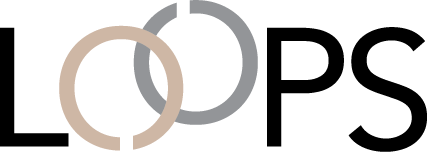Blog: Embracing Disruption: Changing Your Auto Pilot
In a world where routines often become stagnant, disruption might seem like a negative force. However, it can be a powerful catalyst for behavioral change. Disruption, when harnessed effectively, can help us break free from old habits and adopt new, healthier behaviors. Here’s how embracing disruption can lead to transformative changes in our lives.
As we have learned our habit loops is a process that is reinforced by the release of dopamine in the brain, a chemical associated with pleasure and reward. Over time, repeated behaviors become automatic, making it easier for the brain to perform these tasks without conscious effort. This is highlighted in Charles Duhigg's book "The Power of Habit" and supported by neuroscientific studies on habit formation.
Habits, according to science, emerge because the brain is constantly looking for ways to save effort. Left to its own devices, the brain will try to make almost any routine into a habit, because habits allow our minds to ramp down more often. This effort-saving instinct is a huge advantage.
When a habit emerges, the brain stops fully participating in decision making. It stops working so hard, or diverts focus to other tasks. So unless you deliberately fight a habit—unless you find new routines—the pattern will unfold automatically.
To break a bad habit, disruption could be the key. This often involves altering or removing the cues that trigger the undesirable behavior. Research from the Journal of Personality and Social Psychology suggests that changing the environment or context can effectively break the cue-behavior-reward cycle, making it easier to replace bad habits with healthier ones. For example, moving to a new place can disrupt old habits, offering a chance to establish new, positive routines.
How disruption can be a positive thing:
Breaking the Status Quo
Routine provides comfort, but it can also lead to complacency. When disruption occurs—be it a change in job, a new environment, or an unexpected event—it forces us to step out of our familiar patterns. This shift can be the nudge needed to reevaluate our habits and make conscious decisions to change them. For example, starting a new job might prompt someone to rethink their work-life balance, leading them to adopt healthier routines.
Creating a Sense of Urgency
Disruption often brings a sense of urgency that can propel us to act. When faced with unexpected changes, we’re more likely to address areas of our lives that we’ve been neglecting. This heightened awareness can make us more receptive to adopting new behaviors. For instance, a health scare might push someone to reevaluate their diet and exercise habits, leading to significant lifestyle changes.
Encouraging Flexibility and Adaptability
Disruption challenges our ability to adapt. Learning to navigate these changes fosters flexibility, which is crucial for personal growth. By developing resilience and adaptability, we become more open to experimenting with new behaviors and routines. This flexibility can help us overcome the inertia of old habits and embrace healthier alternatives.
Revealing Hidden Opportunities
Sometimes, disruption uncovers opportunities that we might not have noticed before. A major life change—like moving to a new city or starting a new phase in life—can open doors to new experiences and behaviors. For example, relocating to a place with a strong fitness culture might inspire someone to start a new exercise regimen or join a sports group.
Enhancing Self-Awareness
Facing disruption often forces us to reflect on our values and goals. This increased self-awareness can help us identify areas where we need to change. For instance, the disruption of a relationship breakdown might lead someone to focus on personal development and healthier relationship patterns.
Leveraging Support Systems
During times of disruption, support systems become more valuable. Surrounding ourselves with encouraging friends, family, or mentors can help us navigate changes and stay committed to new behaviors. Engaging with supportive communities can provide motivation and accountability as we work toward adopting healthier habits.
Reinforcing New Behaviors
Disruption can help reinforce new behaviors by creating new contexts and routines. For example, starting a new job might come with new schedules and environments that support healthier habits, such as better access to fitness facilities or healthier food options.
Embracing the Positive Side of Disruption
While disruption can be challenging, it also holds the potential to ignite meaningful change. By approaching disruptions with an open mind and a willingness to adapt, we can turn these moments into opportunities for growth. Whether it's breaking free from old habits, discovering new opportunities, or enhancing our self-awareness, embracing disruption can lead to positive behavioral changes that enrich our lives.
So, next time you encounter disruption, view it as a chance to reevaluate and reinvent. You might find that it’s exactly what you need to spark the changes you’ve been seeking.
